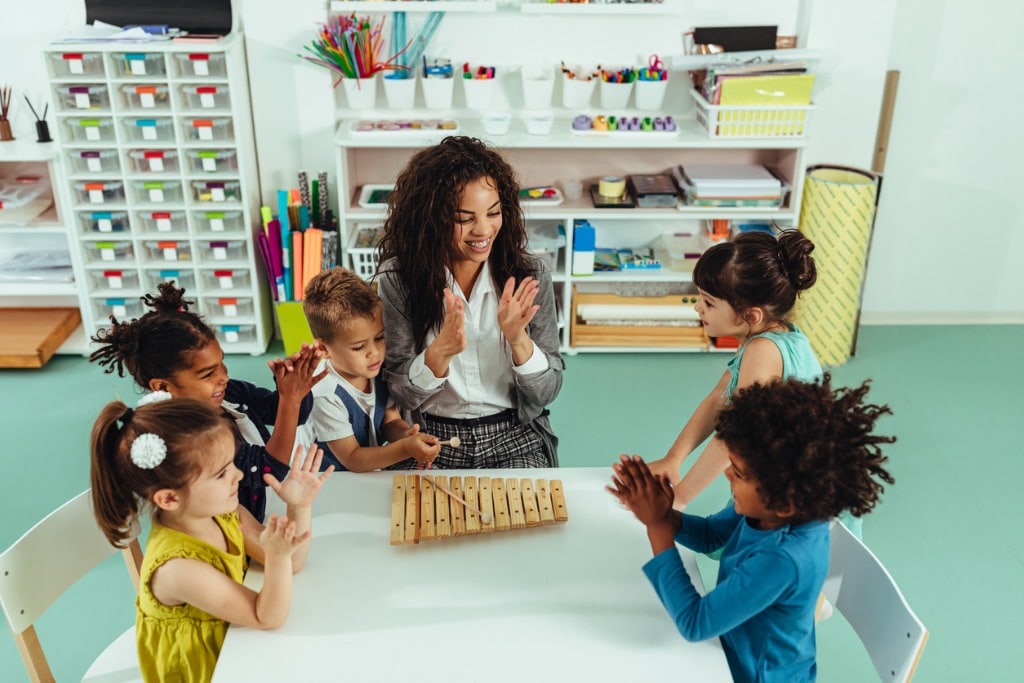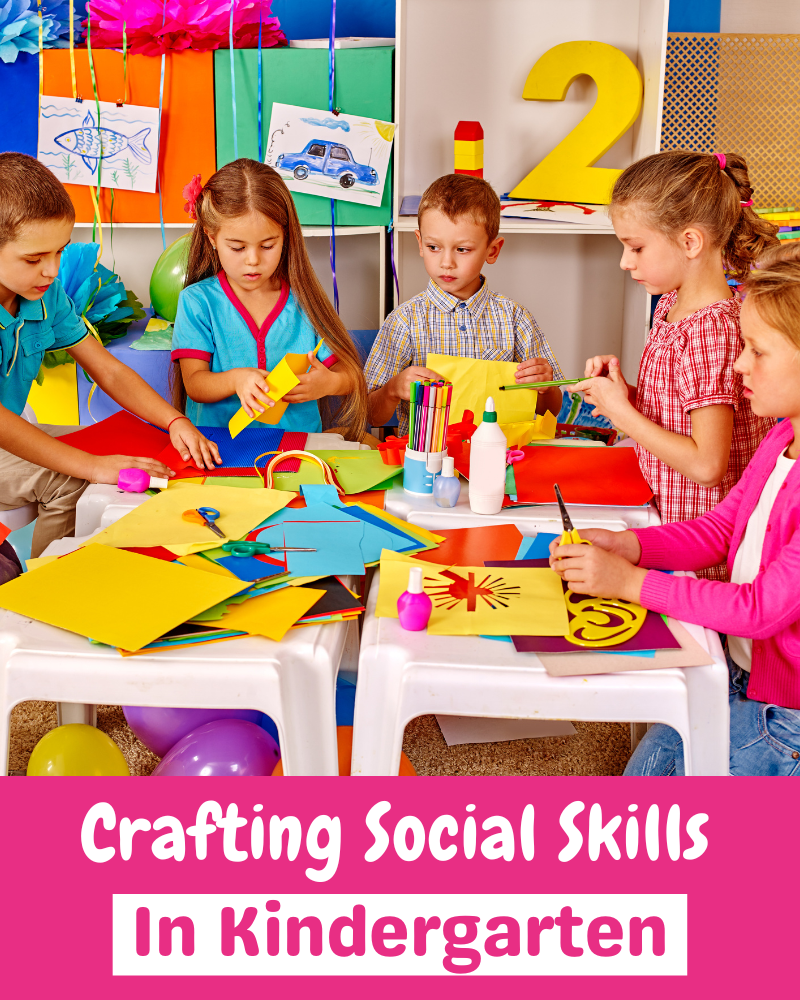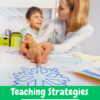Table of Contents
Kindergarten, often a child’s first experience with formal education, is a pivotal phase of their young lives. While academic growth is essential, the development of social skills holds equal importance. This article delves into the significance of nurturing social skills in kindergarteners and offers distinct tips for teachers to do so effectively.
Why Are Social Skills Important in Kindergarten?

H1: Seeds for Future Relationships
Kindergarten acts as the fertile ground where the seeds of future relationships are sown. It’s where the fundamental building blocks for healthy social interactions are established.
H2: Emotional and Behavioral Growth
Social skills are intimately linked to emotional and behavioral growth. Through social engagement, children learn to express their emotions and regulate their behaviors.
The Role of Teachers in Developing Social Skills

H1: Teachers as Living Examples
Teachers don’t just instruct; they model behavior. Children often emulate the conduct of their educators.
H2: Nurturing a Supportive Space
Educators must create an environment where children feel safe to express themselves without the fear of judgment.
Cultivating a Positive and Inclusive Classroom Environment
H1: Celebrating Diversity
Inclusive classrooms are spaces where diversity is celebrated, helping children learn the art of acceptance and respect.
H2: Establishing Classroom Guidelines
Clearly defined and straightforward rules are essential for maintaining order and promoting cooperation.
Teaching Empathy and Compassion
H1: Empathy as the Keystone
The teaching of empathy is paramount. It empowers children to understand and empathize with the emotions of others.
H2: Compassion through Small Acts
Promoting acts of kindness helps children connect with their peers on a profound level.
Encouraging Communication and Cooperation
H1: The Power of Effective Communication
Teaching children to communicate their thoughts and feelings is pivotal for resolving conflicts amicably.
H2: Collaborative Ventures
Group activities encourage collaboration and teamwork, essential social skills.
Problem-Solving and Conflict Resolution
H1: Developing Problem-Solving Prowess
Kindergarten is an ideal stage to teach children how to identify and solve problems independently.
H2: Fostering Conflict Resolution Skills
The ability to resolve conflicts peacefully is a vital aspect of maintaining harmonious relationships.
Nurturing Emotional Intelligence
H1: The Realm of Emotional Intelligence
Emotional intelligence encompasses the recognition and management of one’s own emotions—an aspect that can be cultivated during kindergarten.
H2: The Art of Emotional Expression
Kindergarten teachers should encourage children to express their emotions openly.
Play-Based Learning and Social Skills

H1: Learning Through Play
Play is a powerful tool for children to grasp the concepts of cooperation, negotiation, and sharing.
H2: Injecting Social Scenarios into Play
Incorporating social scenarios into play activities allows children to practice their social skills naturally.
Encouraging Social Interaction Beyond the Classroom
H1: Extracurricular Excursions
Participating in after-school activities can enhance a child’s social skills.
H2: Playdates and Social Gatherings
Organizing playdates and social events outside of school further promotes social interaction.
The Role of Storytelling and Role-Playing

H1: Stories for Fostering Empathy
Storytelling is a powerful tool for helping children understand different perspectives and emotions.
H2: Role-Playing Real-Life Scenarios
Role-playing allows children to rehearse real-life social situations, honing their skills.
Identifying and Assisting Children with Social Challenges
H1: Early Intervention Matters
Identifying signs of social challenges early is crucial for providing the right support.
H2: Collaborating with Specialists
In some cases, collaborating with child psychologists or therapists can be beneficial.
Measuring the Progress of Social Skills
H1: Observational Assessment
Observations can be used to track a child’s progress in social skill development.
H2: Valuable Feedback and Adaptations
Feedback from both teachers and parents can guide adjustments in teaching methods.
The Vital Role of Parents in Cultivating Social Skills
H1: Maintaining Open Communication
Teachers should uphold transparent communication with parents to create a united front in nurturing social skills.
H2: Extending Learning to Home
Parents can extend classroom teachings by encouraging social interactions within the family setting.
In Closing
In summary, nurturing social skills in kindergarten is a fundamental component of a child’s development. Teachers, through their guidance and support, lay the groundwork for successful social interactions in the future. By fostering inclusivity, teaching empathy, communication, cooperation, problem-solving, and emotional intelligence, educators empower kindergarteners to embark on a journey of social growth.
Unlock the Potential Now: I’m aware that there are numerous fantastic worksheets available for social-emotional learning, and these represent just a portion of my collection.
Unique FAQs
1. How can educators create a classroom that celebrates diversity and promotes inclusion in kindergarten?
- Educators can foster inclusivity by celebrating diversity and setting clear classroom guidelines that encourage respect and cooperation.
2. What are the key benefits of teaching empathy to kindergarteners?
- Teaching empathy helps children understand and empathize with others’ emotions, thereby promoting kindness and compassion.
3. How can parents support the development of social skills in their kindergarteners at home effectively?
- Parents can support social skill development by maintaining open communication with teachers and facilitating social interactions within the family setting.
4. How does play-based learning contribute to the development of social skills in kindergarteners?
- Play-based learning provides children with opportunities to practice cooperation, negotiation, and sharing, which are essential social skills.
5. What strategies can educators use to identify and assist children facing social challenges in their classrooms?
- Educators can identify and assist children with social challenges through early intervention and collaboration with specialists, with observational assessments guiding the process.



